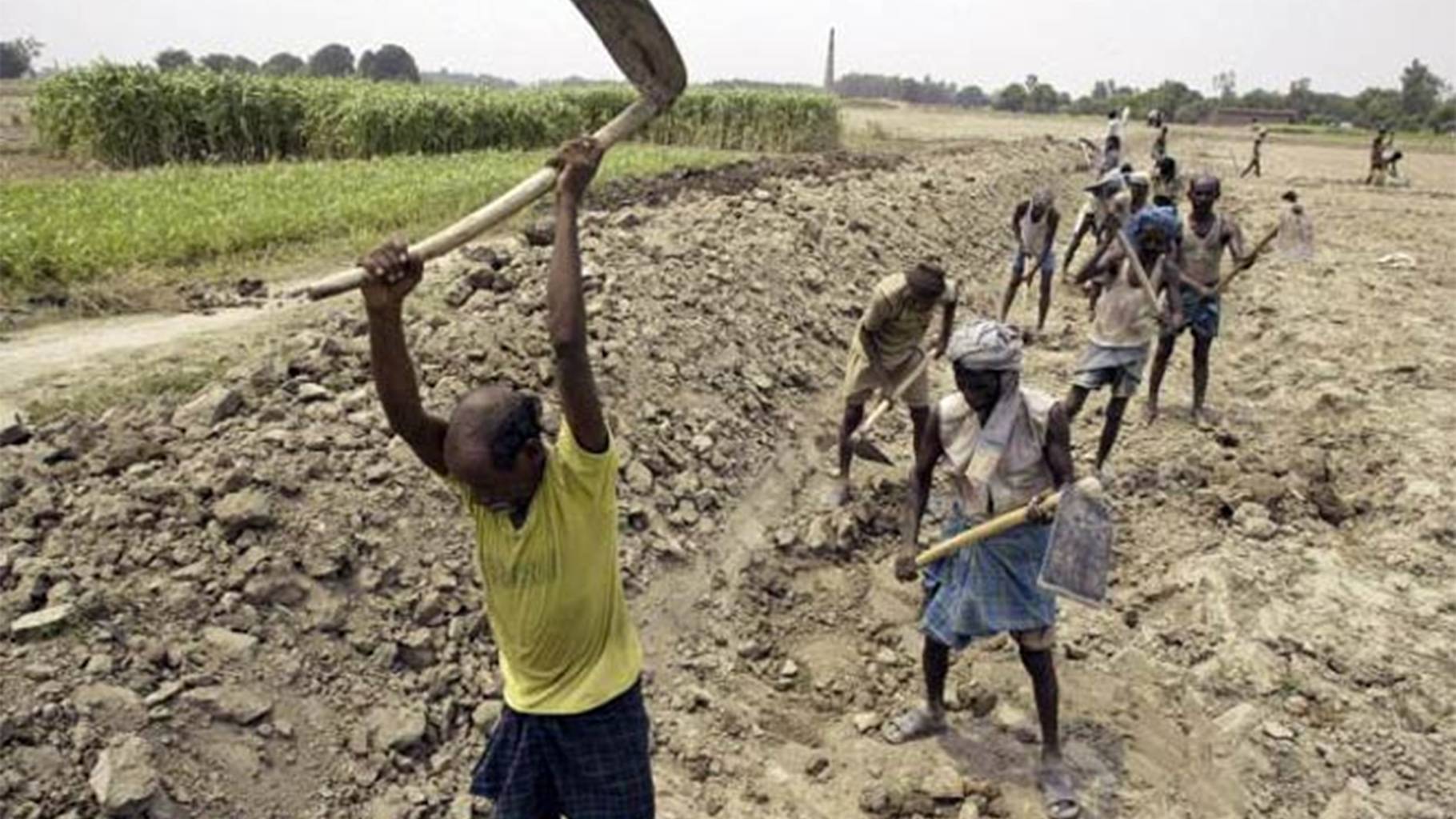
Why Stalin should address corruption first before raising MGNREGA work days
Elected representatives of rural local bodies allege the scheme is mired in corruption and illegally managed by block officials and members of the ruling party

Tamil Nadu Chief Minister MK Stalin’s latest promise to increase the number of work days under the Mahatma Gandhi National Rural Employment Guarantee Act (MGNREGA) Scheme, from 100 to 150 days, hasn’t cut much ice with rural local bodies. Elected representatives in many panchayats across the state allege that the scheme is mired in corruption and they have little say in its workings, as it is primarily run by block officials and politicians of the ruling party.
Who controls local bodies? Not elected representatives
The state has a total of 12,618 panchayats. Between 2016 and 2019, when the AIADMK was in rule, no elections were held for rural local bodies, and all works related to panchayats were entrusted with government officials like block development officers. While BDOs supervised MGNREGA work, they haven’t relinquished their power even after the conduct of rural local body polls in December 2019, allege elected representatives.
“We thought the condition would change for the better after a regime change. Unfortunately, government officials and DMK party functionaries still interfere in the conduct of MGNREGA works. It appears like the present disposition is maintaining the status quo,” S Nanadakumar, general secretary, Thannatchi, an organisation working towards creating awareness on Panchayati Raj, told The Federal.
Nandakumar alleges that in many panchayats, MGNREGA work is given on contract basis to functionaries of the ruling party, while government officials carry out unnecessary works in panchayats without consulting local bodies about the needs of the village.
Stephen, a resident of a panchayat in Chengalpattu district and an RTI activist of Pathu Roobai Iyakkam, claims that corruption worth ₹4,206 crore took place between 2017 and 2019 under the scheme in Tamil Nadu. It ranges from officials taking bribes from people to issue job cards to spending scheme money on unnecessary projects.
Also read: No state provided 100 days of work under MGNREGA in FY22: Govt data
“Take the Kudimaramathu scheme, for instance. It is an ancient method of renovating village tanks with the help of residents. The work should be taken up under the MGNREGA. But in many panchayats, instead of engaging the public, government officials give the work to contractors, who use JCBs (industrial machinery) to clean water bodies. By doing so, a 10-day work gets reduced to four days and contractors get a lump sum in return. We took the help of RTI to learn about such corrupt practices. Based on the information, we petitioned the collectors of each and every district and tried to retrieve the money from the erring officials. We were successful in retrieving the money in Thiruvallur, Krishnagiri and Namakkal districts and the money has been paid to the people,” Stephen said.
Anti-MGNREGA voices
The allegations against corruption in the implementation of MGNREGA comes at a time when the scheme is facing resistance in several parts of the state.
Political parties like Naam Tamilar Katchi claim that the scheme has destroyed the state’s agriculture, as it diverts the labour force towards MGNREGA work, making it difficult for traditional farmers to get farm hands.
Countering the claim, economists like J Jeyaranjan, a member of the state planning commission, say that with farming season limited to three or four months, the scheme in fact helps farmers find employment during the rest of the year when they are not growing crops.
KS Radhakrishnan, an advocate and DMK spokesperson, said though the scheme was launched with a good motive, it became mired in corruption and now only favours the clerks of the panchayats.
“Under this scheme, only people who belong to the respective panchayats can work. Who decides what work should be carried out? It is the gram sabha of the elected panchayat. Also, the same gram sabha should monitor the works. The panchayats should implement those works. This is what the law says. But how many panchayats are given proper training in this regard? How could we be so unprepared to use the law that gave powers to the grassroots people?” he remarked to The Federal.
Rekha Ramu, the panchayat president of Pandeswaram of Thiruvallur district agrees with Radhakrishnan. She attributes the dependence of panchayat members on government officials to a sheer lack of awareness about the powers of the local body and knowledge of the Mahatma Gandhi National Rural Employment Guarantee Act.
“Earlier, every house in a village, whether the family was rich or poor, whether they were employed or not, wanted a card under this scheme. Then the entries were done in a register that led to a lot of irregularities. But now a separate app has been created and because of that only those who are unemployed are getting jobs. However, still a lot needs to be done,” she told The Federal.
Discrimination against the disabled
While on one hand local body representatives allege that they lack freedom to implement this scheme according to their needs, on the other hand, differently-abled are claiming that some of the panchayat presidents are interfering in selecting the people for work and thereby a discrimination is practised against the disabled.
Also read: Once passionate teachers, NCLP staff turn daily wagers as Centre shuts project
“The differently-abled are given some concessions under this scheme like timings, nature of work, etc. Recently, the rural development department has mandated that each worker should be photographed while coming to the work in the morning and returning from the work in the evening. Though the disabled are allowed to return from their work before the prescribed exit timing, they are forced to wait until others have completed their eight hours of work,” said S Namburajan, general secretary, Tamil Nadu Association for the Rights of All Types of Differently Abled and Caregivers, in a statement.


